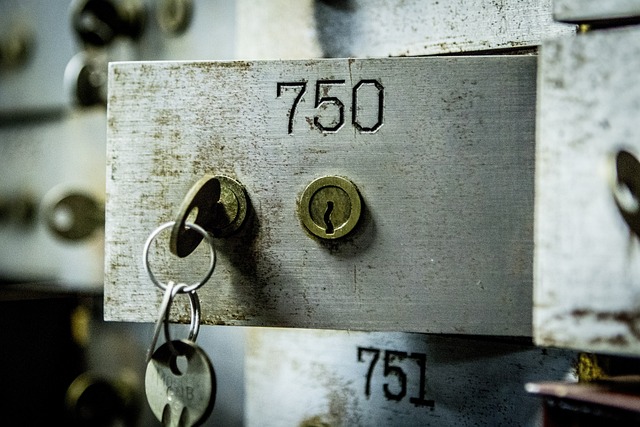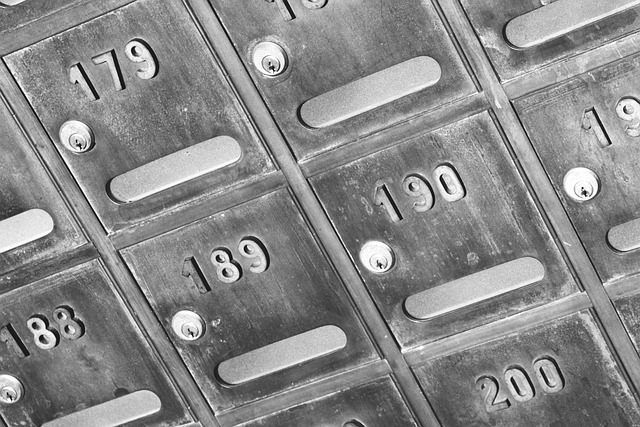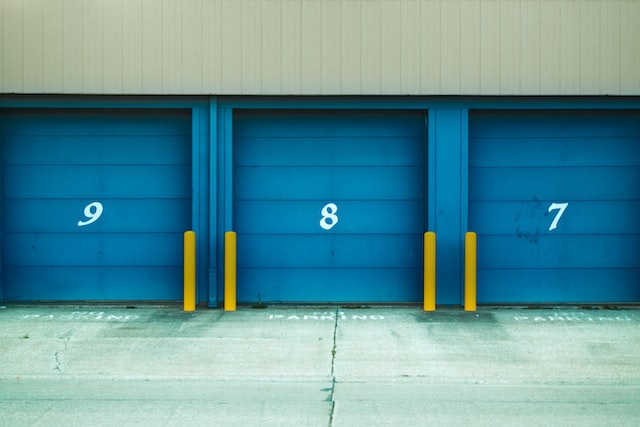When you hear the term safe storage spaces, what comes to mind? Shout out to thank John, for bringing this to my attention this week! Let’s review everyday life storage spaces (i.e. safe deposit boxes and outside storage facilities) you may use today.

Safe or Safety Deposit Box
A safe deposit box, also known as a safety deposit box, is an individually secured container, usually held within a larger safe or bank vault. Safe deposit boxes are generally located in banks, post offices or other institutions.
According to MarketWatch.com, the The Global Safe Deposit Box market is anticipated to rise between 2022 and 2029. In 2020, the market is growing at a steady rate and with the rising adoption of strategies by key players.
A recent article in AARP mentions that many big banks are moving away from providing safe deposit boxes, while reporting there are over 25 Million safe deposit boxes leased in the US alone! Many banks have moved away from physical locations and into providing more online banking services. Because of this, you may have to travel farther to access a safe deposit box.

Picture from: https://guardiansafeandvault.com/
Convenience Factors
Safe storage for important documents is an important factor to consider. Access to these documents is a big consideration (think about banking hours, distance from you and access for you and others if needed) before deciding your approach.
For your access and convenience, consider a fireproof/waterproof safe for your home/office is a way to protect important documents and identification. A safe deposit box is often used for irreplaceable items (i.e. heirlooms, photos) not often accessed.
Financial institutions respect your privacy. Keep in mind you alone know what’s inside the safe deposit box! If you want to insure the items inside the safe deposit box, it is up to you to secure private insurance. Items inside a safe deposit box are not insured by the institution (remember, they don’t know what’s inside!)
Security
If you use a safe deposit box, what type of security is in place to access the box? It’s important you know the security process/procedures of the institution that will be in possession of your important items. Below are some questions to consider before you place your valuables somewhere.
- – What are the security measures used by the institution?
- – Are the vault area and boxes easily accessible?
- – What are the requirements to access the vault area/individual boxes?
- – Who has access to keys?
- – How are employees vetted?
- – What identification is required to access the vault area/boxes?
- – How are vault entries documented?
- – What are the viewing areas monitored?

Other Storage Facilities
Do you use an outside storage facility to store furniture, boxes, trailers, vehicles +? Like banks, there may be access hours, codes, surveillance equipment and rules that apply. ** Unclaimed vehicles can be auctioned/sold if unclaimed in the timeframe set by state law. Pay attention to any outside storage facility’s contract and how they address incapacity and/or death.
Who Knows About What?
Last week I wrote about what a Power of Attorney is. Heads-up, this role only applies while you’re living. IF you’re not here and someone tries to access information about you, the Power of Attorney no longer applies.
It’s very important you somehow, someway leave information about any outside storage areas you use. IF someone doesn’t know you have outside storage, where it is, and how to access it your property may fall into an “unclaimed property” category.
After a period of time, the FDIC or the bank must transfer unclaimed property to the state. Federal law requires unclaimed deposit accounts to be transferred to the state after 18 months, and state laws differ on the period of time after which contents of safe deposit boxes must be transferred.
If you’ve gone to the trouble of establishing a safe deposit box, PLEASE relay the details to someone (and preferably more than one person). The FDIC provided a state by state listing of contact information to learn the procedures for your state here: https://www.fdic.gov/resources/resolutions/bank-failures/failed-bank-list/unclaimed-property-states.html
Communication is so important about a gazillion little details about your life at home and work. While you’re healthy and able to communicate – Do It!
In all things big and small, communication allows others to know what you want, what you have and how you’d like things handled. Some people prefer to avoid the “face to face” and opt for written or recorded information.
Do what’s good for you to “leave a trail of breadcrumbs” for those coming in behind you. If you trust someone with access, you could add them to the safe deposit box contract. This way, the extra legal hurdles will be avoided.
Is it time to take action to protect you and yours? Reach out and let’s talk. Send me an Email: Lynn@thelivingplanner.com or if you’d prefer to schedule a Complimentary Discovery Call to discuss your particulars, let’s do it!
My main website is: https://thelivingplanner.com. If you’d like to try a DIY approach, check out my online courses/resources to assist people, pets and businesses here: https://courses.thelivingplanner.com
As Francis Atterbury quoted, “It’s attention to detail that makes the difference between average and stunning” Details matter ❣️ -Lynn
#LifeHacks #CareForPeopleCareForBusiness
